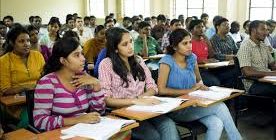Are our children equipped with life skills when they leave school to face the world outside? Recent industry surveys are increasingly suggesting that there is a worrying life skills shortage in the workforce. “…graduates are leaving education with inspiring theoretical knowledge, but lack of practical job-related skills. There is a huge soft skills gap developing,” as explained by Ian Gomes, Chairman, KPMG, New and Emerging Markets.
Are we educators working to bridge this gap? I believe, “A curriculum that does not remind students that they are learning life skills is no curriculum at all.” The vision of life skill education is to nurture learners to be are aware, responsible and empowered. The World Health Organisation definition says, “Life skills are abilities for adaptive and positive behaviour that enables individuals to deal effectively with the challenges of everyday life.”
An adaptive person is flexible in approach and is able to adjust to different circumstances. Positive behaviour implies that a person is forward-looking and can identify a ray of hope and opportunities even in difficult situations. Schools need to focus on developing these life skills among their students. According to developmental scientists, early adolescence (10-14years) is a critical period of opportunity for building skills and positive habits. At this age, there is recognition of self, ability to think and solve problems on one’s own. The transition to high school is also a challenge for students, both academically and socially. Children go through rapid and tremendous changes in the transition years. Therefore, we at school, have the responsibility to equip students with life skills for their holistic development and a fulfilling life.
The three basic categories of life skills which supplement and reinforce each other are social/interpersonal skills, emotional skills and thinking skills. This includes problem-solving, critical thinking, effective communication, decision making, interpersonal relationships, self-awareness, empathy, coping with stress and managing emotions.
It is important for schools to identify curricular as well as co-curricular activities that have the potential for developing skill application ability, for the child is greatly influenced by the environment in which he learns and acts. Class discussions, brainstorming, situational analysis, story telling, case study, theme based songs and poems and role play, are some techniques that can be applied to develop skills. Therefore classes should be interactive, rewarding and supportive.
Teachers should encourage curiosity and exploration, value the development of creative activities, and promote ample and equal opportunity for all students. The focus should be on the process, not on the final presentation or result only, thus acknowledging the effort, not just the performance. Eventually though, the most important factor motivating students in the classroom is the quality of the teacher. On his/her competence, commitment and character depends the progress of the learner. It naturally follows that the teacher be warm, caring, supportive, open and receptive, resourceful, a positive role model and has adequate knowledge about adolescent behaviour.
We can then achieve our aim, which is not only to enable students to do well in school, but also help them do well in the lives they lead outside of school.





Leave a reply